migrant language movement
Action: March and April, 2020. Madrid, Spain
Book (Download): English (monolingual) / English (bilingual) / Français / Español /
Italiano /Deutsch / Arabic & Euskera / Portugués
Audiobook (Download): Spanish / Darija, Romanian & Urdu
In collaboration with Valiente Bangla, Museo Situado and Reina Sofía National Museum.
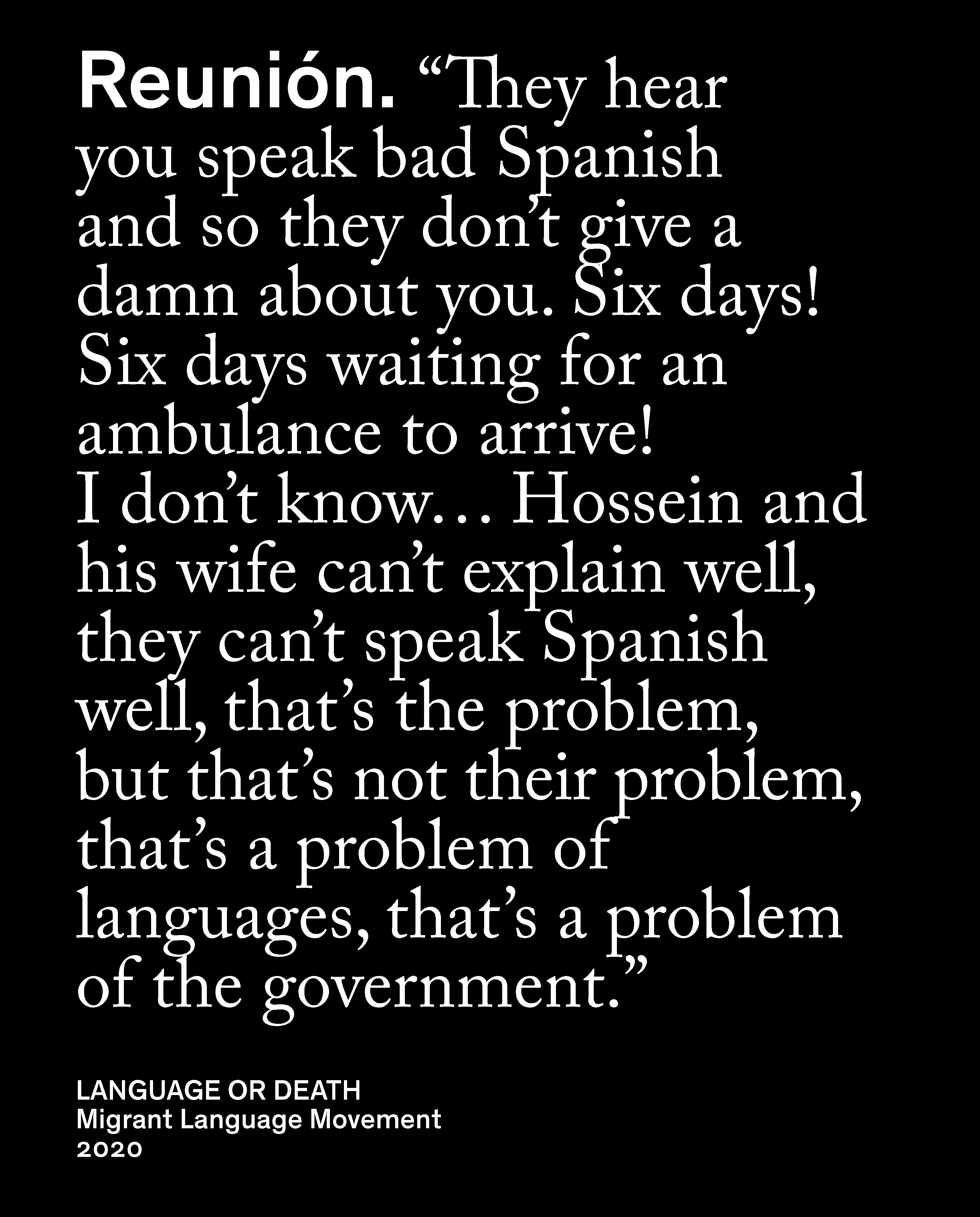
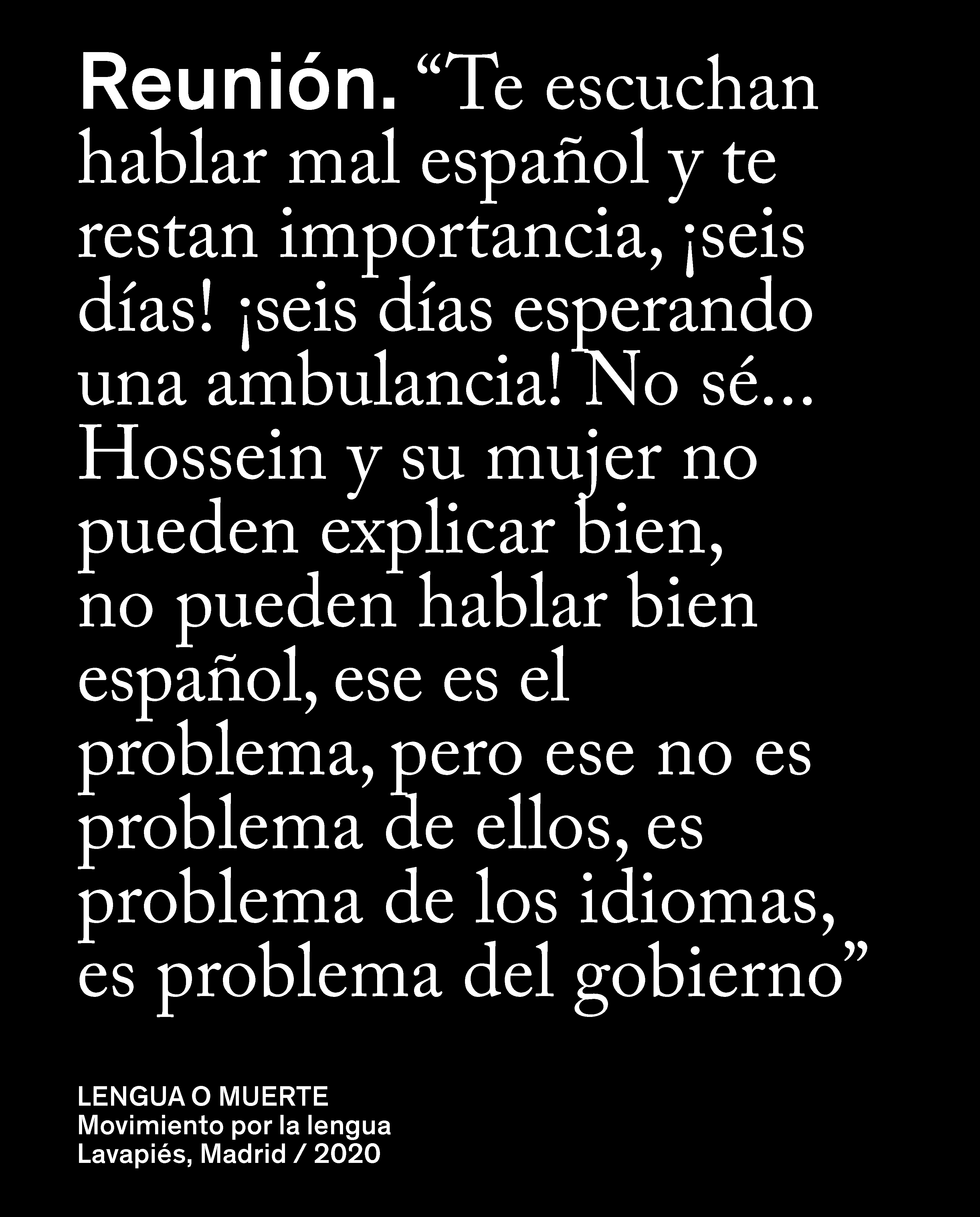
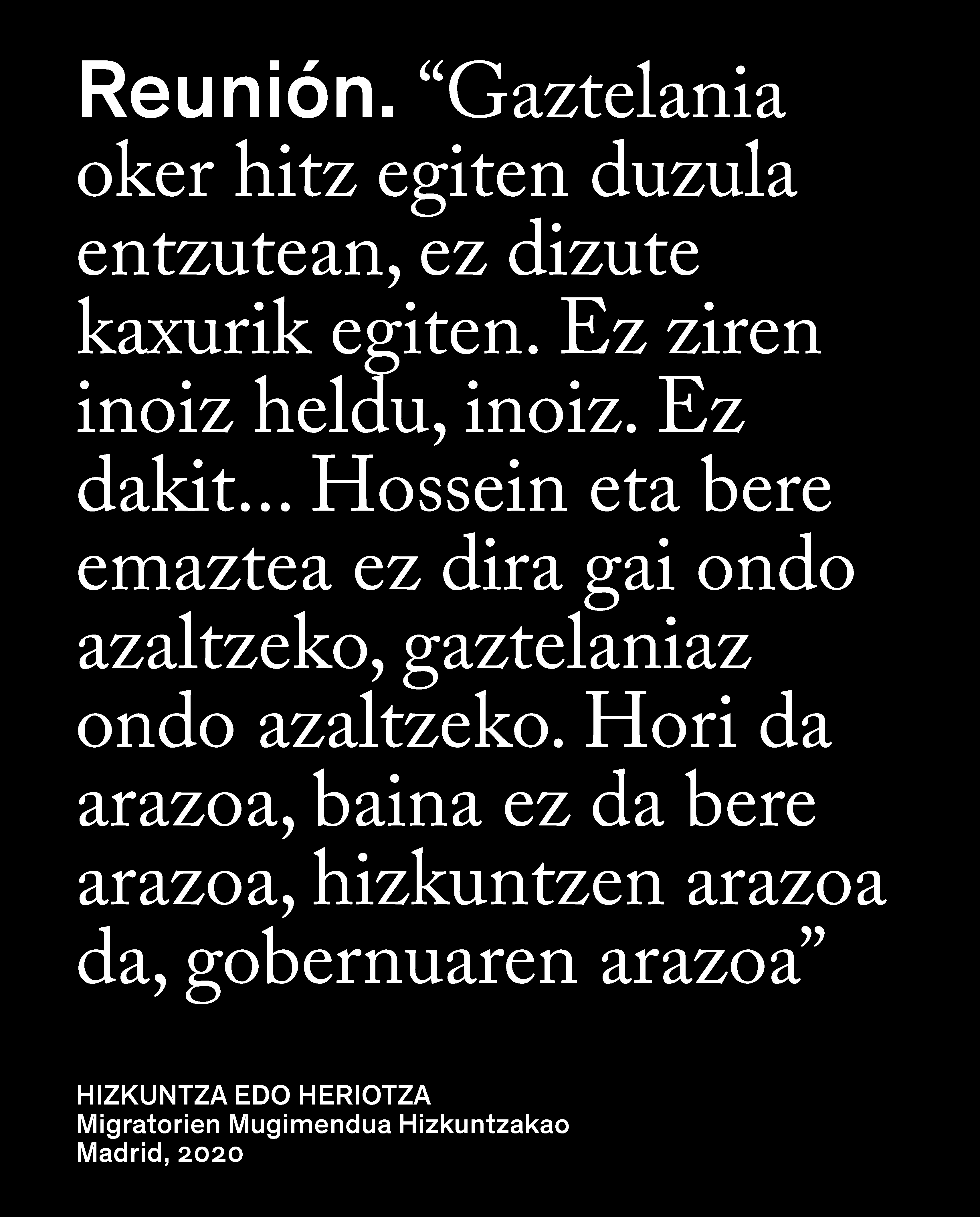
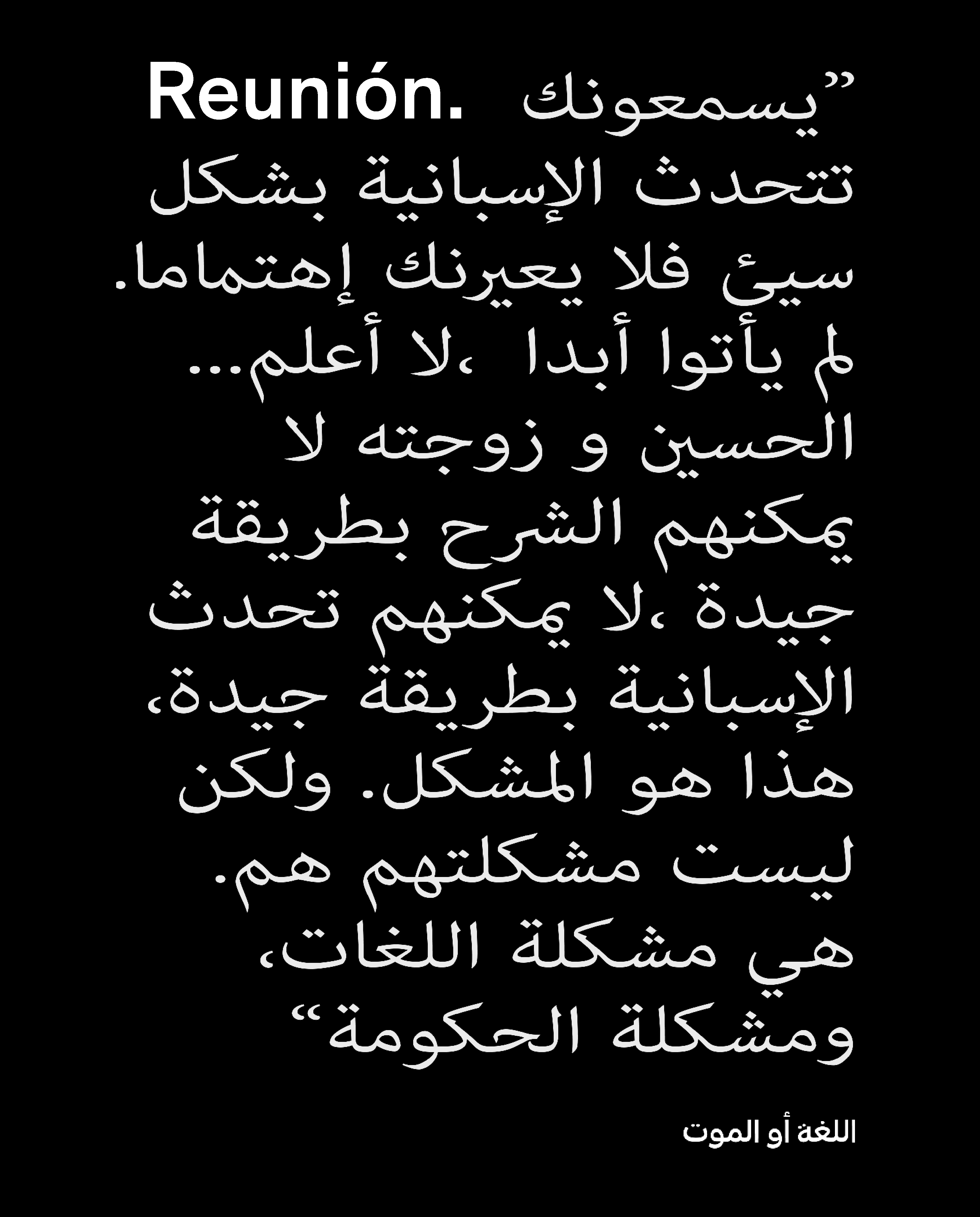
Razib, Afroza y Elahi are migrants. They were born in Bangladesh and live in Madrid. On March 26, in the midst of the Covid-19 crisis, Mohamed Hossein, a member of their community, died in his house after calling healthcare services for six days. No doctor went to see him, no ambulance went to retrieve him. He spoke little Spanish.
Since then, together with other migrant and social organizations, they are creating a language movement, demanding compulsory oral translation in healthcare centers, schools, courts, state offices. Interpreters right now, in order to understand what they are told, to be understood, to be able to live in their own language.
In 1947 India is divided and what is now Bangladesh became part of Pakistan. In 1948 the government of Pakistan tried to establish Urdu as the exclusive language of the whole territory. Immediately, students and young people organized mass demonstrations and protests, a popular insurrection called Language Movement. That events drove to the liberation of Bangladesh in 1971. The official language of the new country is the Bangla.
During April 2020, I called them on the phone. They spoke to me and I listened. I asked a few questions here and there and made some sounds so they knew I was still there. I recorded their voices, and as soon as we hang up, I played them and wrote them down. Every time they paused to inhale, I started a new line. I erased the recordings and send the texts to them. We edited them together and made this book, which has an e-book and an audiobook that can be downloaded for free, and a printed book that is distributed by the community.
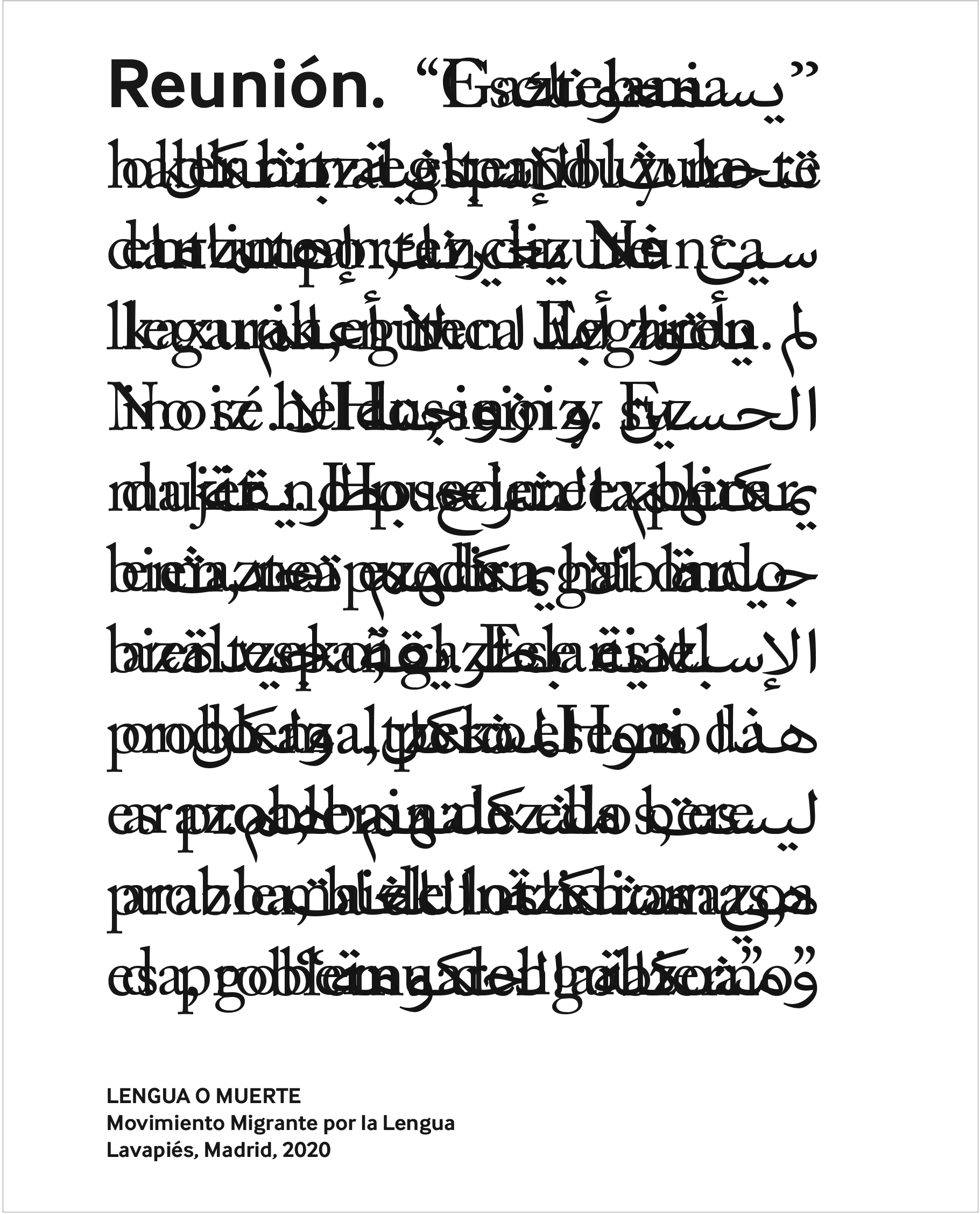
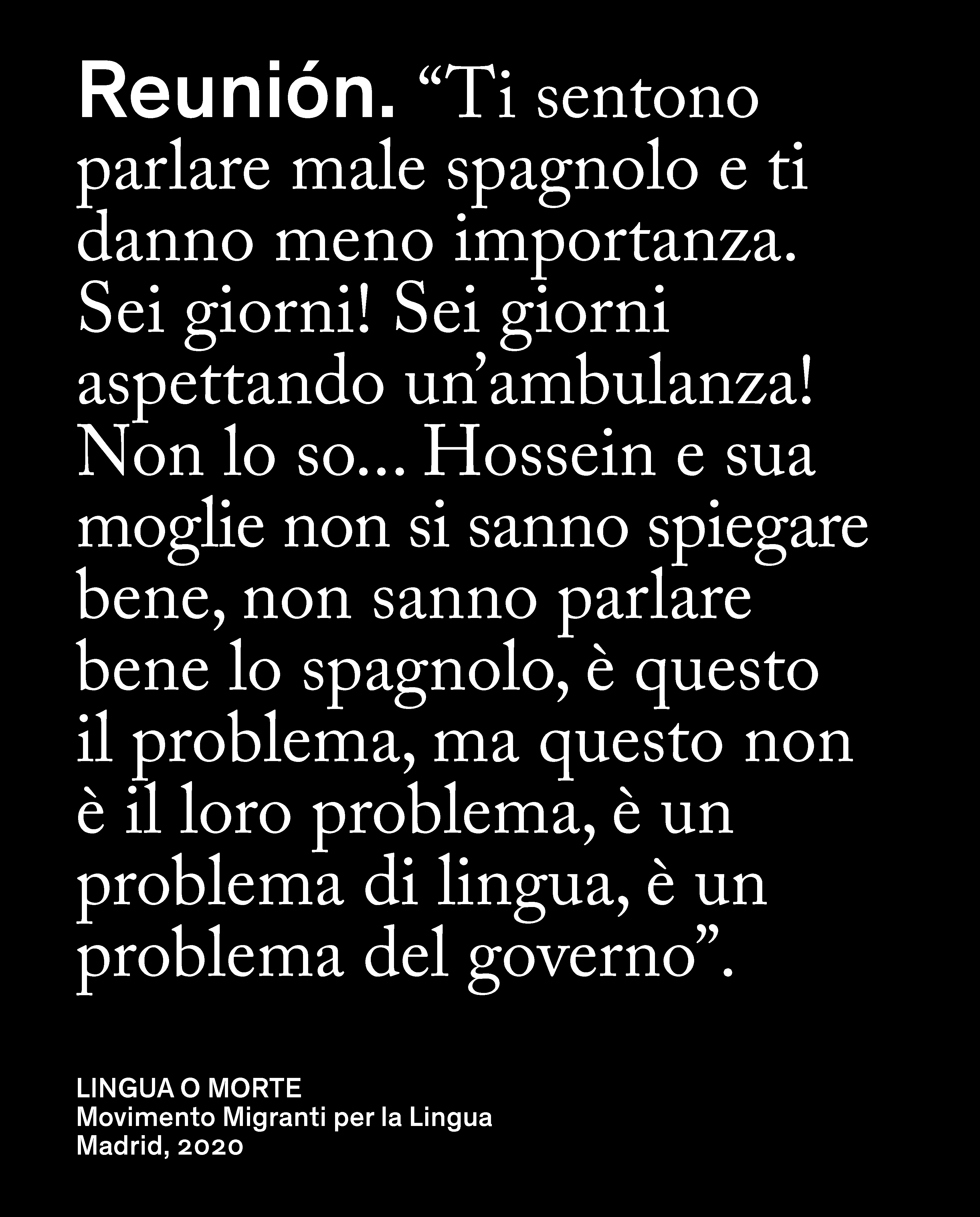
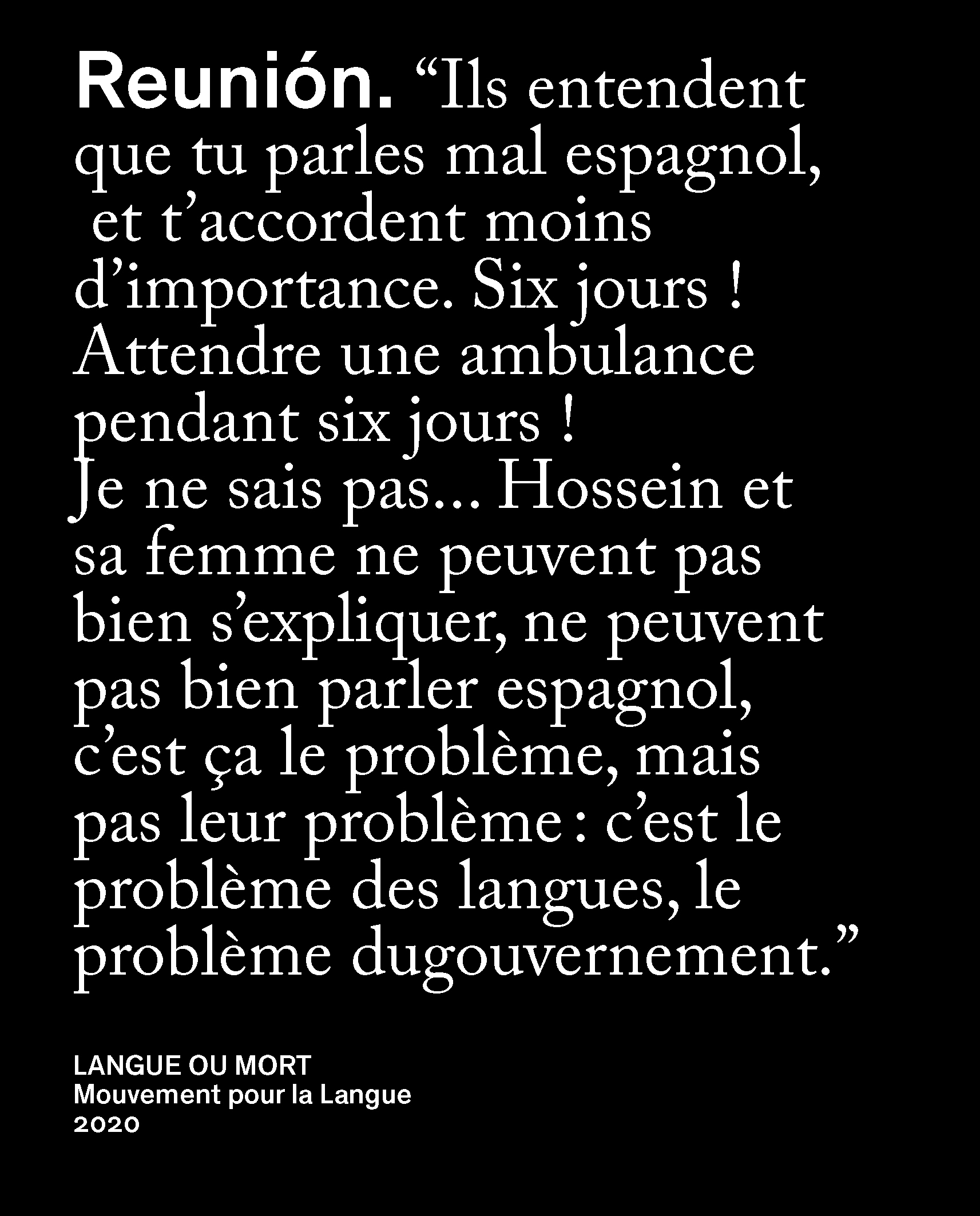
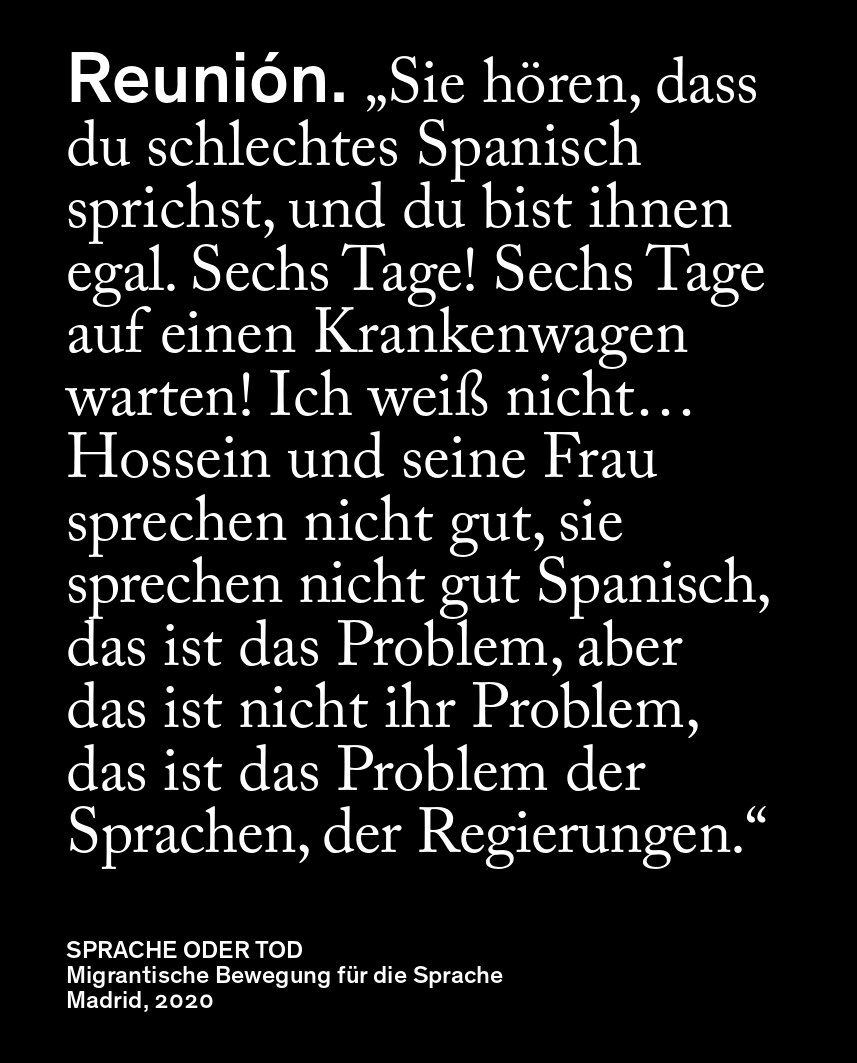
The path of the work:
— One thousand copies were printed in Spain, which were distributed by the community. One thousand copies were printed in Argentina, which were distributed by Reunión.
— The book became a motto and a political support for a Network of more than fifty Volunteer Interpreters who have offer free oral translation for migrants in Madrid during the Covid crisis.
— It was translated into Arabic, Darija, Basque, English, French, German, Italian, Portuguese and Urdu. Most of the translations were self-convened by migrants who started to use the book to get in touch with other migrants and to become part of the Migrant Movement for Language.
—.An expanded edition will be held in 2022. It will add the voices of the Network of Volunteer Interpreters and of the migrants who translated the book.
